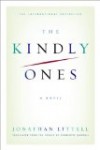|
|
There’s been tons of commentary on Citizens United v. Federal Election Commission, in which the Supreme Court said the government can’t restrict corporations from spending money to support or oppose individual candidates in elections. Yet there’s been meager discussion on one issue the decision raises — judicial activism.
For years we’ve heard the GOP rallying cry that Democrats appoint activist judges. What is an activist judge? Here’s what the 2008 Republican platform said: “Judicial activism is a grave threat to the rule of law because unaccountable federal judges are usurping democracy, ignoring the Constitution and its separation of powers, and imposing their personal opinions upon the public.” You don’t have to look much further than South Dakota’s own U.S. Sen. John Thune to find someone who loves to invoke that mantra.
He has a page on his website about the “issue” of judicial nominations, where he says, “I believe that [judicial] nominees should abide by and apply the rule of law, instead of becoming activist judges who try and create law.” When he voted to confirm U.S. Supreme Court Chief Justice John Roberts, a part of the Citizens United majority, he said that, “most importantly, [Roberts] is committed to applying the law as it is written, not according to his own opinions or philosophies.” In contrast, when he voted against Justice Sonia Sotomayor, who was in the minority in Citizens United, Thune did so in part because she didn’t appear to decide cases “based on precedent and fidelity to the law.”
Thus, Citizens United presents an intriguing juxtaposition. The five justices who voted to invalidate “the law as it is written” and to overrule prior precedent are all Republican appointees. Three of the four who felt stare decisis — the doctrine that courts will follow principles of law laid down in previous cases — mandated the opposite result were appointed by Democrat presidents. Not surprisingly, stare decisis was one of the battlegrounds in the Court. “The only relevant thing that has changed since [the overruled decisions] is the composition of this Court,” said Justice John Paul Stevens in dissent joined by Justices Ginsburg, Breyer and Sotomayor. Chief Justice Roberts, in turn, wrote a concurring opinion “to address the important principles of judicial restraint and stare decisis implicated in this case,” evidently wanting to show his court is not an activist court.
Despite how well the decision may fit the GOP’s “judicial activism” box, I haven’t seen Thune, GOP chairman Michael Steele or the state Republican Party decrying an “activist” Supreme Court. That reinforces the fact talk about activist judges is just so much hooey trotted out or ignored by politicians depending on who decided what issue. The term misrepresents the role of the judiciary. Even when a trial judge rules on the admissibility of evidence, he or she is “making law” for that particular case. The higher you go in the judicial hierarchy, the broader the impact of a ruling.
This doesn’t mean the law is immune from a judge’s legal outlook. Yet with rare exceptions, those views are reflected by the interpretive methodology upon which they rely (such as the originalism v. living Constitution debate in constitutional interpretation). So, the next time a politician or political party complains about activist judges, you’re simply hearing an epithet used by the addlebrained for a ruling they don’t like. Ignore that veneer and find out what reasoning led the court to its result. At least then any disagreement is based on reason, not artifice.
It is emphatically the province and duty of the Judicial Department to say what the law is. Those who apply the rule to particular cases must, of necessity, expound and interpret that rule.
Marbury v. Madison (1803)
Blog Headline of the Week
Interesting Reading in the Interweb Tubes
Bookish Linkage
Nonbookish Linkage
- Even if the plan is justified, can you really read this without an involuntary giggle? “The executive editor of the National Enquirer says he plans to enter his paper’s work on the John Edwards scandal for a Pulitzer Prize.” (Via.)
- The Encyclopedia Britannica blog is launching a new series on learning and literacy in the digital age.
[The] power of accurate observation … is commonly called cynicism by those who have not got it.
George Bernard Shaw, Shaw on Music
There’s a couple reasons American History X makes my favorite movies list. One is simply that it’s a compelling look at a disturbing topic — neo-Nazism among young American men. Another is that it was a major step in Edward Norton becoming one of my favorite actors.
 At first, you may not think this is Norton, especially if you recall him as Aaron in the 1996 film Primal Fear. Released just two years later, American History X presents a bulked up, heavily muscled Norton. It is an amazing transformation. Combined with Norton’s talents as an actor, it helps make his character, Derek Vinyard, more believable. Norton earned plenty of best actor nominations for his performance, including the Oscar (won that year by Roberto Benigni for Life is Beautiful, one of the worst Academy Award decisions in my memory). At first, you may not think this is Norton, especially if you recall him as Aaron in the 1996 film Primal Fear. Released just two years later, American History X presents a bulked up, heavily muscled Norton. It is an amazing transformation. Combined with Norton’s talents as an actor, it helps make his character, Derek Vinyard, more believable. Norton earned plenty of best actor nominations for his performance, including the Oscar (won that year by Roberto Benigni for Life is Beautiful, one of the worst Academy Award decisions in my memory).
Vinyard is a leading member of a skinhead group in Los Angeles. Despite being very intelligent, he makes no bones about his hatred. To him, every problem in America is due to “social parasites,” the “Blacks, Browns, Yellow whatever.” Vinyard ends up in prison after brutally murdering a black man. Although the story takes a road that is almost too pat when Vinyard realizes the error of his ways while in prison and then he is paroled on the condition he keep his younger brother from following the same path, the film is still powerful. The story is told from the timeframe following Vinyard’s release from prison and, while that is in color, all flashbacks were filmed in black and white, adding a unique approach to a film about race.
Rotten Tomatoes gives it an 83 percent rating, with a consensus that it is a “compelling and provocative story led by an excellent performance by Edward Norton.” It is in the range of “generally favorable reviews” at Metacritic, but users of the site give it a 9 out of a possible 10. I am clearly in the latter group, believing that while American History X has its flaws, it is an impressive and disturbing look at race and hatred in America.
Life’s too short to be pissed off all the time.
“Danny Vinyard” (Edward Furlong), American History X

Who’s your favorite author that other people are NOT reading? The one you want to evangelize for, the one you would run popularity campaigns for? The author that, so far as you’re concerned, everyone should be reading–but that nobody seems to have heard of. You know, not JK Rowling, not Jane Austen, not Hemingway–everybody’s heard of them. The author that you think should be that famous and can’t understand why they’re not…
This is relatively easy for me — except that there are inherent problems for continuing readership. My pick would be Hans Fallada. The problem is not only that Fallada is a German author but he’s been dead since 1947. Fortunately, Melville House started releasing his works, with Every Man Dies Alone, my favorite novel last year, being translated for the first time.
I read two other of his books last year, both of which were quite good but suffered simply in comparison to Every Man Dies Alone. I am eagerly anticipating Wolf Among Wolves, which is set for a March release.
Fallada is neither a stunning stylistic writer nor did he lead a new literary wave. He just wrote straightforward, well-structured and enticing novels that caused you to stop and consider the characters and their situations. What more would anyone ask from their favorite “unknown” author?
What I like in a good author is not what he says, but what he whispers.
Logan Pearsall Smith, Afterthoughts
A 975-page novel probably isn’t the best for the first “microreview,” especially one as widely praised and condemned as Jonathan Littell’s The Kindly Ones.
 The book won two of France’s highest literary awards before being translated into English — although it is written by an American. It is the fictional, but exceptionally well researched, memoir of Max Aue, a Nazi SS officer who survived the war and remains unapologetic about National Socialism, its aims and his involvement in what became known as the Holocaust. When you combine Aue’s lack of guilt with his incest, scatological references, brutal homosexual encounters and possible murder of his mother and stepfather, this is not a pleasant read. Still, it is an unquestionably intriguing and unvarnished exploration of the psychology — or abnormal psychology — of Nazism’s true believers. The book won two of France’s highest literary awards before being translated into English — although it is written by an American. It is the fictional, but exceptionally well researched, memoir of Max Aue, a Nazi SS officer who survived the war and remains unapologetic about National Socialism, its aims and his involvement in what became known as the Holocaust. When you combine Aue’s lack of guilt with his incest, scatological references, brutal homosexual encounters and possible murder of his mother and stepfather, this is not a pleasant read. Still, it is an unquestionably intriguing and unvarnished exploration of the psychology — or abnormal psychology — of Nazism’s true believers.
The readability of the work is not helped by its typography. Littell uses a quotation style with which Americans are unfamiliar, he loves commas and he avoids paragraph breaks. Thus, many paragraphs in the book’s seven chapters, all named for 17th Century dances, can run on for two or more pages. Substantively, The Kindly Ones can be criticized as at times far-fetched given Aue’s somewhat miraculous escapes from death and his personal contact with a true rogue’s gallery — Himmler, Heydrich, Speer, Eichmann and even, in a somewhat ludicrous scene, Hitler. But Littell’s focus isn’t necessarily external events or history. He tries to look much deeper, to take us inside how seemingly ordinary men committed such horrendous acts. He forces us to examine the question of evil in man, whether banal or otherwise. These are inherently unpleasant inquiries.
Littell sometimes lets Aue expound on history, philosophy and the arts at perhaps too much length. That said, the unique, albeit disturbing, perspective The Kindly Ones gives on some of history’s greatest atrocities makes it a book that can and should be considered an “important” work of fiction.
I do not regret anything: I did my work, that’s all[.]
Jonathan Littell, The Kindly Ones.
|
Disclaimer 
Additionally, some links on this blog go to Amazon.com. As an Amazon Associate I earn from qualifying purchases. There is no additional cost to you. Contact me You can e-mail me at prairieprogressive at gmaildotcom.
|









